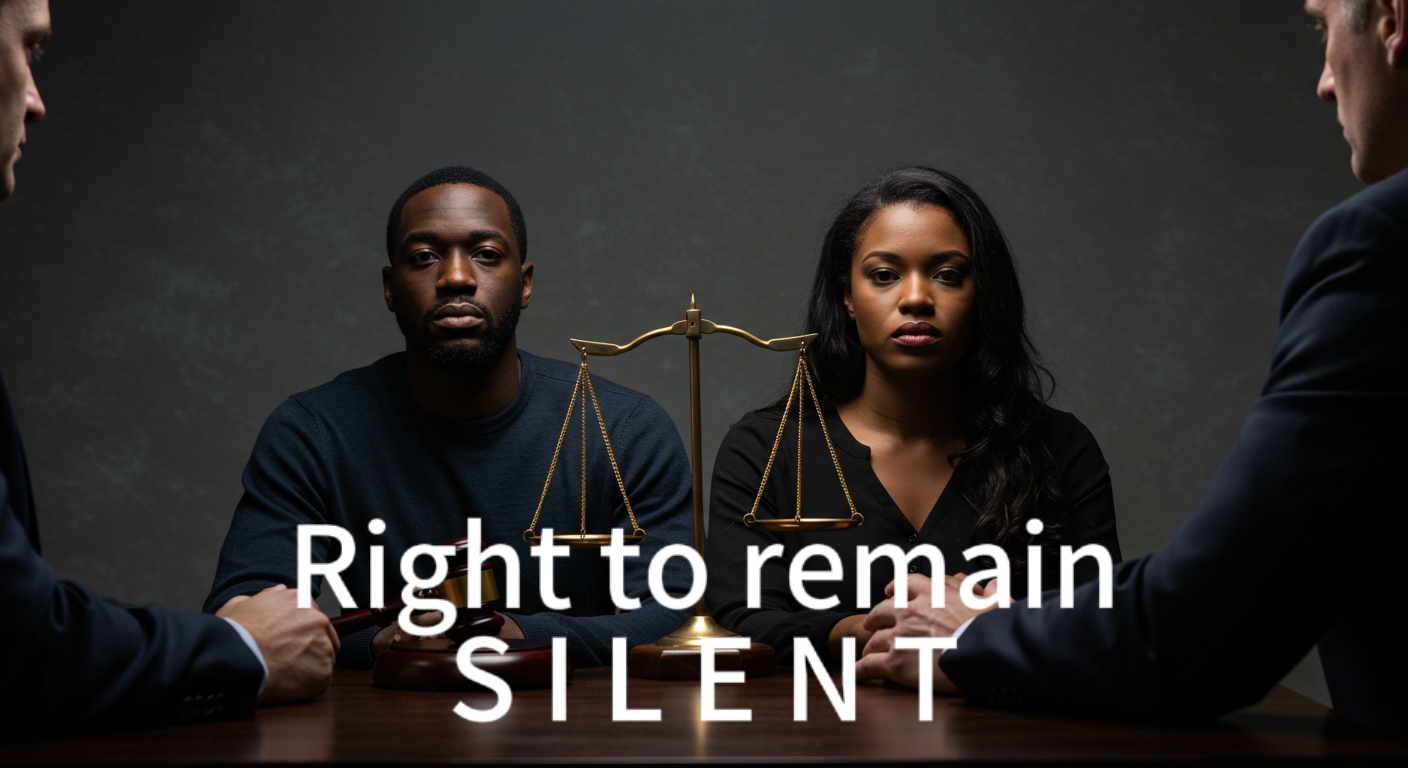
...
The right to remain silent is a fundamental legal principle that protects individuals from being compelled to incriminate themselves. This right is enshrined in both international human rights law and Nigerian constitutional provisions, offering crucial safeguards against coercion and abuse, particularly in the face of police interrogation or torture. Understanding the scope and merits of this right is essential for ensuring fair legal proceedings.
Imagine facing intense pressure or even torture from law enforcement. The right to remain silent provides a critical shield, preventing self-incriminating statements that could be used against you in court. It's a cornerstone of justice systems worldwide, ensuring that individuals are not compelled to contribute to their own downfall.
This article delves into the legal foundations of the right to remain silent, examining its roots in international law and its specific application within the Nigerian legal system. We'll explore the protections it offers, particularly in situations involving police misconduct, and discuss its significance in ensuring fair trials.
International Legal Foundations
The right to remain silent is recognized in various international human rights instruments:
- Universal Declaration of Human Rights (UDHR): Article 11(1) states, "Everyone charged with a penal offence has the right to be presumed innocent until proved guilty according to law in a public trial at which he has had all the guarantees necessary for his defence." While not explicitly stating "right to silence" this presumption of innocence supports it.
- International Covenant on Civil and Political Rights (ICCPR): Article 14(3)(g) affirms the right "not to be compelled to testify against himself or to confess guilt." This directly establishes the right to remain silent.
- Convention Against Torture and Other Cruel, Inhuman or Degrading Treatment or Punishment: This convention prohibits the use of torture to obtain confessions, reinforcing the importance of the right to silence in preventing coerced self-incrimination.
Nigerian Legal Provisions
In Nigeria, the right to remain silent is protected under the Constitution and other legal frameworks:
- Constitution of the Federal Republic of Nigeria, 1999 (as amended): Section 35(2) states that "every person who is arrested or detained shall have the right to remain silent or to avoid answering any question until after consultation with a legal practitioner or any other person of his choice."
- Administration of Criminal Justice Act (ACJA) 2015: This act reinforces the constitutional provisions, providing detailed procedures for safeguarding the rights of suspects during interrogation.
- Evidence Act: Provisions within this act help to ensure that statements obtained under duress are inadmissible in court.
Protection Against Torture and Coercion
The right to remain silent is particularly crucial in situations involving police torture or coercion. It serves as a vital safeguard against forced confessions, which are inherently unreliable and unjust.
- Inadmissibility of Coerced Statements: Courts generally reject evidence obtained through torture or other forms of duress.
- Protection During Interrogation: Suspects have the right to refuse to answer questions until they have consulted with a lawyer.
- Prevention of Self-Incrimination: This right ensures that individuals are not forced to provide evidence against themselves.
Merits in Court
The right to remain silent plays a crucial role in ensuring fair trials:
- Presumption of Innocence: It reinforces the principle that individuals are presumed innocent until proven guilty.
- Fair Trial Rights: It is a fundamental component of the right to a fair trial, as guaranteed by international and domestic laws.
- Protection Against Unjust Convictions: It helps prevent wrongful convictions based on coerced or unreliable confessions.
The right to remain silent is a cornerstone of justice, protecting individuals from self-incrimination and ensuring fair legal proceedings. Understanding and asserting this right is essential for safeguarding fundamental freedoms and preventing abuses of power.
- Universal Declaration of Human Rights (UDHR)
- International Covenant on Civil and Political Rights (ICCPR)
- Convention Against Torture and Other Cruel, Inhuman or Degrading Treatment or Punishment
- Constitution of the Federal Republic of Nigeria, 1999 (as amended)
- Administration of Criminal Justice Act (ACJA) 2015
- Evidence Act (Nigeria)

Add new comment